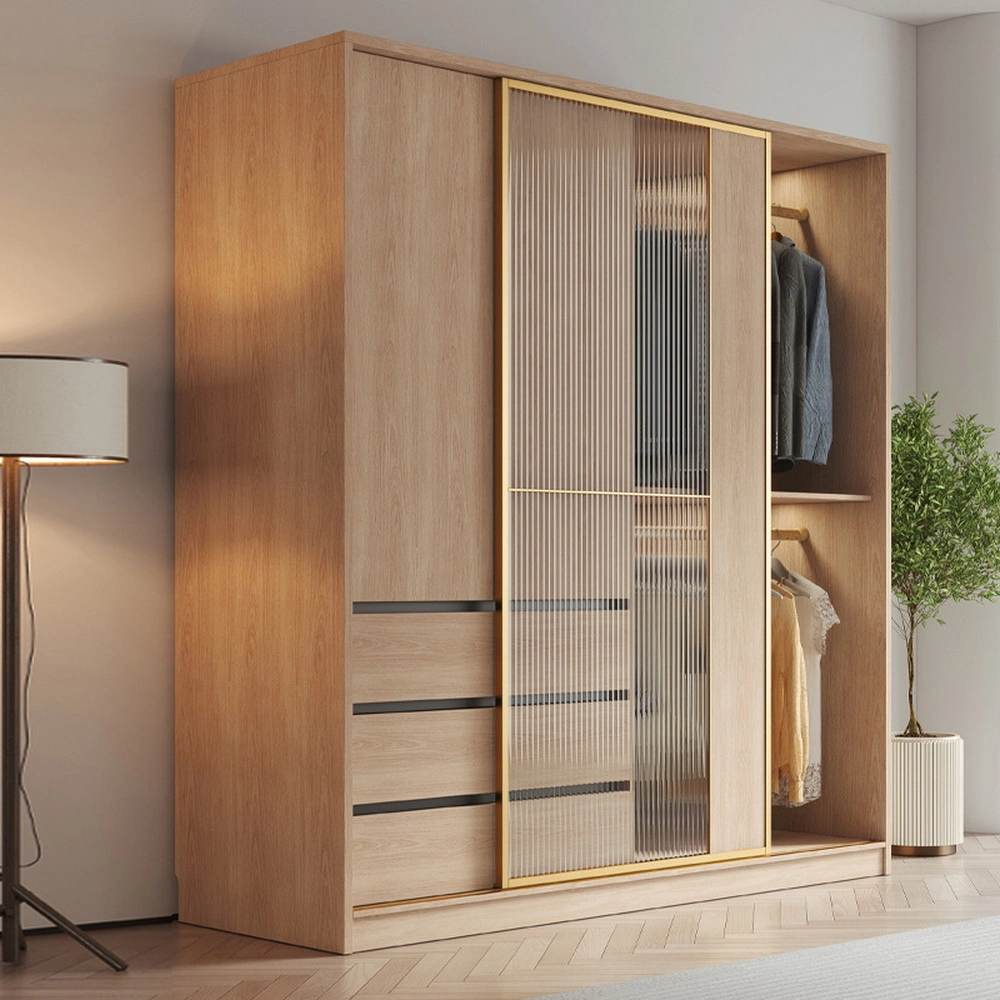PVC Wardrobe Manufacturing
Introduction
In recent years, PVC (Polyvinyl Chloride) wardrobes have gained immense popularity as a practical and stylish storage solution. Known for their durability, lightweight nature, and resistance to moisture, PVC wardrobes are an excellent choice for modern homes. This article delves into the process of manufacturing PVC wardrobes, highlighting the materials used, production techniques, benefits, and market trends.
Materials Used
The primary material for manufacturing PVC wardrobes is PVC, a synthetic plastic polymer. PVC is favored for its versatility, strength, and resistance to wear and tear. Additionally, manufacturers may incorporate other materials such as:
- MDF (Medium-Density Fiberboard): Often used for shelving and panels, MDF provides a smooth finish and is easily customizable.
- Melamine: A decorative coating applied to surfaces for aesthetics and durability.
- Hardware Accessories: Hinges, handles, and sliding mechanisms are essential for functionality and ease of use.
Manufacturing Process
-
Design and Planning: The manufacturing process begins with the design phase, where various wardrobe styles and sizes are conceptualized. Designers create detailed blueprints, considering factors such as space utilization, user requirements, and aesthetic appeal.
-
Material Selection: Once the design is finalized, the appropriate materials are selected. High-quality PVC sheets, MDF boards, and other components are sourced from reliable suppliers.
-
Cutting and Shaping: The PVC sheets and MDF boards are cut into specific sizes using precision cutting machines. This stage ensures that all components fit perfectly during assembly.
-
Surface Finishing: To enhance appearance and durability, the surfaces of the panels are finished using techniques like lamination or painting. This step not only improves aesthetics but also protects the material from scratches and moisture.
-
Assembly: After finishing, the components are assembled into the final wardrobe structure. Skilled craftsmen or automated machines attach panels, shelves, and hardware accessories. Quality control is crucial during this stage to ensure that all parts are correctly fitted and functional.
-
Quality Assurance: Each wardrobe undergoes rigorous testing for stability, durability, and finish. This step ensures that the final product meets industry standards and customer expectations.
-
Packaging and Distribution: Once the wardrobes pass quality checks, they are carefully packaged to prevent damage during transportation. Manufacturers often employ eco-friendly packaging materials to align with sustainable practices.
Benefits of PVC Wardrobes
- Durability: PVC is resistant to moisture, pests, and mold, making it ideal for various climates.
- Lightweight: PVC wardrobes are easier to handle and install compared to traditional wooden wardrobes.
- Low Maintenance: These wardrobes require minimal maintenance, only needing occasional cleaning with a damp cloth.
- Customization: Manufacturers can easily customize PVC wardrobes to suit different tastes and interior designs.
- Cost-Effective: PVC wardrobes offer a budget-friendly solution without compromising on quality and style.
Market Trends
The demand for PVC wardrobes has surged in recent years, driven by the growing trend of modular and space-saving furniture. Urbanization and smaller living spaces have fueled interest in multifunctional furniture, where PVC wardrobes play a crucial role. Additionally, eco-conscious consumers are increasingly drawn to PVC due to its recyclability and sustainable manufacturing processes.
Conclusion
The manufacturing of PVC wardrobes represents a blend of innovation, functionality, and design. With a focus on durability and style, these wardrobes cater to the evolving needs of modern consumers. As trends continue to shift towards sustainable and efficient furniture solutions, PVC wardrobes are poised to remain a popular choice in the home furnishing market. With advancements in manufacturing technologies and design capabilities, the future of PVC wardrobes looks promising, offering endless possibilities for both manufacturers and consumers alike.
